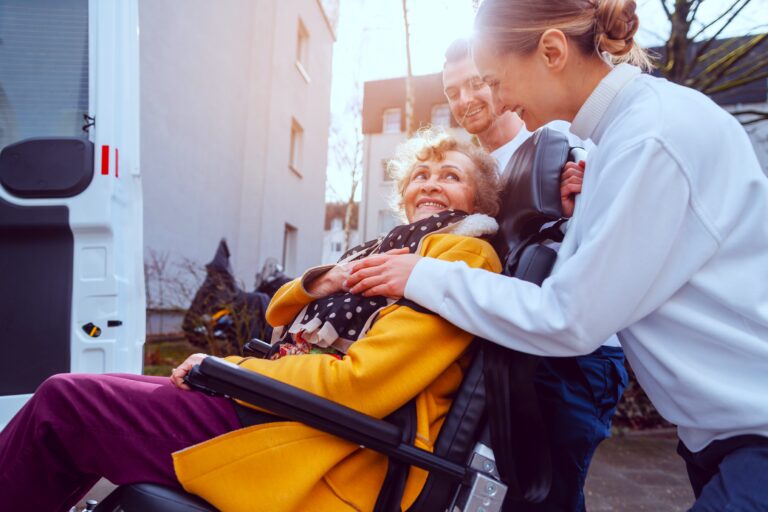Getting older is a natural process and, although each stage of life brings new challenges, old age doesn’t have to be synonymous with loneliness or difficulties.
Fortunately, in Portugal, there is a vast network of support designed to ensure that the elderly can live with dignity, security and well-being. Whether through financial support, health services or personalized social responses, the aim is to enable all older people to age with quality and maintain independence and an active lifestyle.
Find out more about the main support available.
Financial support
In old age, financial security is an important pillar for a peaceful life. From monthly pensions to extraordinary supplements, Portugal has various forms of support that ensure the elderly can live with dignity, even when their income drops after retirement.
- Old-age pension: at the age of 66 years and seven months, citizens are entitled to a monthly pension – known as “reforma” – to replace the income lost when they stop working, provided they have at least 15 years of Social Security contributions.
- Social old-age pension: for those who do not have sufficient deductions, there is financial aid for elderly people on very low incomes
- Solidarity Supplement for the Elderly (CSI): a monthly support for elderly people on low incomes, which also offers additional health benefits such as discounts on medicines, glasses, dental prostheses and medical consultations.
- Extraordinary pension supplement: additional financial support granted to pensioners on lower incomes to ease financial burdens and ensure greater economic stability.
- Dependent spouse supplement: low-income couples, where one of the spouses receives up to 44.61 euros
- Social support for elderly emigrants in need: elderly Portuguese, aged 65 or over, who live abroad and are in a situation of vulnerability or need, may be entitled to social support, which should be requested at consular posts
- Extraordinary social support for energy consumers: CSI beneficiaries can ask for a reduction in the price of electricity and natural gas, accumulating this discount with the social tariff.
Health support
While financial security is important, quality of life in old age also involves health. Those who receive CSI, for example, have access to a range of benefits that help to reduce health costs and thus provide relief from daily expenses.
Among the support available are:
- Expenses with medicines: receives 50% of the part not reimbursed by the state, relieving the cost of prescriptions
- Purchase of glasses and lenses: 75% co-payment of up to 100 euros every two years, to ensure clearer and more comfortable vision
- Purchase or repair of removable dentures: the CSI covers 75% of the cost up to 250 euros every three years, helping to take care of oral health
- Dental voucher: additional support for dental treatment.
Reimbursements are made upon presentation of the medical prescription and the respective receipt at the Health Center, and are paid together with the Solidarity Supplement for the Elderly. To claim these benefits, you will need to present a Social Security statement proving your entitlement to CSI when you first apply.

Social support
Social Security and Private Social Solidarity Institutions (IPSS) have developed a vast network of social support for the elderly.
- Social centers: promote social and cultural activities that encourage the active participation of the elderly and prevent loneliness, fostering new interpersonal relationships.
- Day centers: for elderly people aged 65 and over, day centers offer continuous support that stimulates autonomy, self-esteem and postpones the need for permanent institutionalization.
- Night center: designed for elderly people who live alone and feel insecure at night, they offer overnight care, providing greater security and peace of mind.
- Vacation and leisure centers: the chance to relax and discover new places is essential for the well-being of the elderly. Vacation centers offer moments of relaxation and group living, ideal for those who have autonomy.
- Home support service: for elderly people with greater dependency, this service provides support with day-to-day tasks such as hygiene, feeding and domestic care.
- Residential facilities: offer collective accommodation for the elderly, both temporarily and permanently, with environments adapted to their needs.
- Family foster care: families prepared to take in elderly people can provide temporary or permanent support.
Financial support in Portugal is undoubtedly an important help and, compared to many countries, offers a significant support network. But unfortunately, for many elderly people, they are still not enough to guarantee a life without worries. According to the National Statistics Institute (INE), more than 400,000 elderly people live on a maximum of 551 euros a month, far below the amount needed to ensure a dignified life.
Latest measures to support the elderly
In recent years, the government has been implementing new measures to support the elderly population. The highlight is the Statute of the Elderly which promotes the active participation of the elderly in society, thus encouraging more dignified and inclusive ageing.
A significant increase in the financial contribution for social services for the elderly, such as nursing homes and day care centers, was also approved, with a 3.5% increase in funding. This measure helps to alleviate the effects of inflation and guarantee the continued operation of these essential services.
How can I access this support?
In order to access any of these benefits, it is important for the elderly or family members to check with Social Security, local authorities or IPSSs in their area. Most of these benefits can be applied for at Social Security offices or Citizen’s Shops, where you can get advice and fill in the necessary forms.




